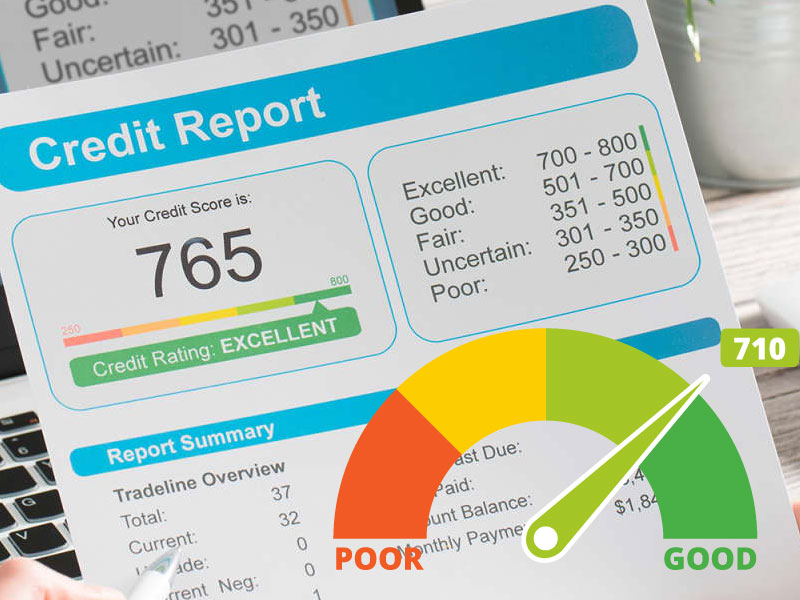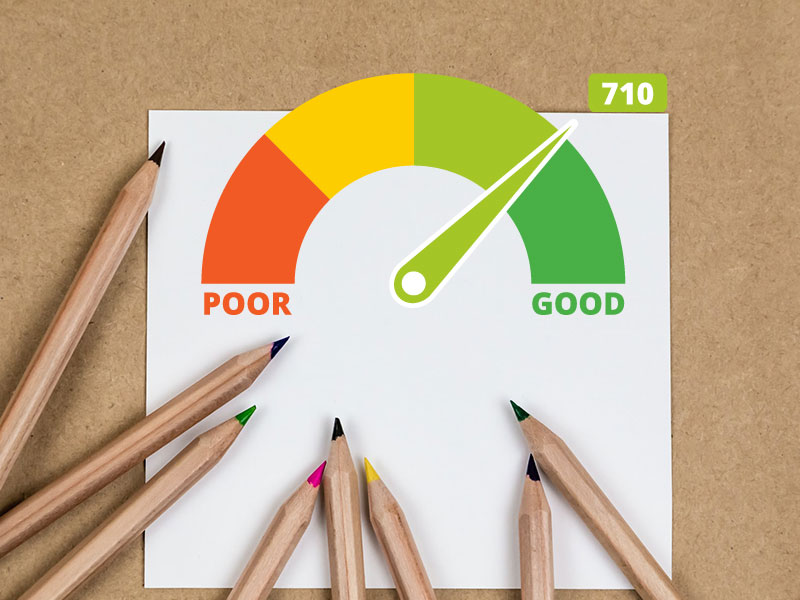
According to Equifax, one of the major credit bureaus in the United States, the average American credit score is 698. What does this mean for you? If you have begun the process of buying a house, leasing a car, or renting an apartment, you may have been informed that your lender ran a “credit check” and compared your score to a standardized chart that rated the number anywhere from “excellent” to “poor.”
What is the highest credit score you can have and does yours need to be raised? Discover answers to these questions and more in this guide. We’ll help you understand the basics of credit, how this number may be affecting your life, and what you can do to raise the score to the highest number possible.
Table of Contents
What Is a Credit Report and a Credit Score?

A credit report, simply put, is an aggregate of your financial choices. Your bill payment history, the loans you’ve taken out, the amount of debt you currently have, and any other pertinent information such as how many open accounts you own will be listed on this report. Lenders view your credit report to judge whether they are taking a financial risk by giving you more money.
If they notice that you have not paid your bills on time for the last five years, or that your credit score is abnormally low, they will likely pass on renting you an apartment, granting you a mortgage, or helping you secure a low-interest credit card.
Your credit score is a number that represents the information on your credit report. Higher scores are viewed as good to excellent, while low scores indicate that you are probably not a good candidate for a loan.
Sometimes, this information is misleading: If you have faced years of financial hardship or medical expenses, you may have had to take out several loans to keep your family intact. If you wish to repair poor credit, there are certainly ways to accomplish this task.
What Is the Highest Credit Score You Can Have?
Credit scores range from 350 to 850. Remember that these numbers by themselves don’t mean much: A score of 647 does not mean that you owe $647 in debt, for example. The scores typically fall into the following ranges and represent your risk to potential lenders:
- Over 800 is exceptional.
- Between 580 and 740 is OK to good.
- Below 580 is poor.
Within this system, a score of 850 is the highest score a person can achieve. Lenders do not expect a perfect score, so don’t worry if your credit is significantly lower than this. A score over 700 will likely put you in the running for the loan you need.
Why You May Need To Raise Your Credit Score
You’ve checked your score and it sits at a solid 682. Now what? Before you shrug off the concept of credit scores entirely, it is important to realize that there are several areas of your life that depend upon maintaining a good credit score.
Every line of credit you open and every payment you miss will affect your score, so even if your score falls into the “good” range, it’s crucial to check it every month to ensure that it is either rising or staying the same.
Are you considering buying a house and taking out a mortgage, renting an apartment, or opening a new credit card with low interest rates and travel perks? Watch your score closely. The higher it is, the better chance you have at securing these loans. Though no lender will be able to make a foolproof judgment of a person’s ability to pay back a loan based on his or her credit score, many lenders will not want to take a chance on a person who has a score on the lower side.
Understanding what is the highest credit score you can have and raising your score to at least 700, or focusing on maintaining it and making sure that it does not drop below this point, is a good goal if you are considering any loans, rentals, or big-ticket purchases in your future.
How To Repair Your Credit Score
Don’t panic if you have realized that your score needs to be higher to secure the line of credit you need. First, it’s important to get in the habit of regularly checking your credit score. If you notice that it has dropped suddenly, try to figure out why.
Perhaps you missed a payment, or maybe you used more than 30% of your total credit on your favorite card. If you don’t know why your score changed, take a look at your credit report. It may be a combination of several minor reasons.
Next, you should focus on the small changes you can fix right away. If you forget to pay bills on time, set up automatic payments from a reliable bank account. If you can’t afford to pay your bills or you have a gigantic sum of outstanding debt, consider consolidating the debt into one convenient (and likely smaller) payment a month.
Finally, don’t close accounts just for the sake of closing them. Having an “older” account that you don’t use much but pay consistently on time can raise your score. Similarly, don’t open several new accounts in a row unless you need to. Taking out loans and opening new credit cards in quick succession may make lenders suspicious.
Set Goals: What Is the Highest Credit Score You Can Have on Your Personal Report?
Understanding what is the highest credit score you can have and the impact this number has on your life can be easy enough — but knowing how to effectively raise your score can be difficult. If you need help getting your credit back on track, find the resources you need at Fiscal Tiger.
We’re here to guide you through personal finance topics, credit card choices, and provide you with ways to quickly raise your credit score and repair your credit on your own. Start learning today.





